
Opinions
17:49, 17-Feb-2018
Opinion: China is playing a big role in Iraqi reconstruction
Guest commentary by Zhou Rong
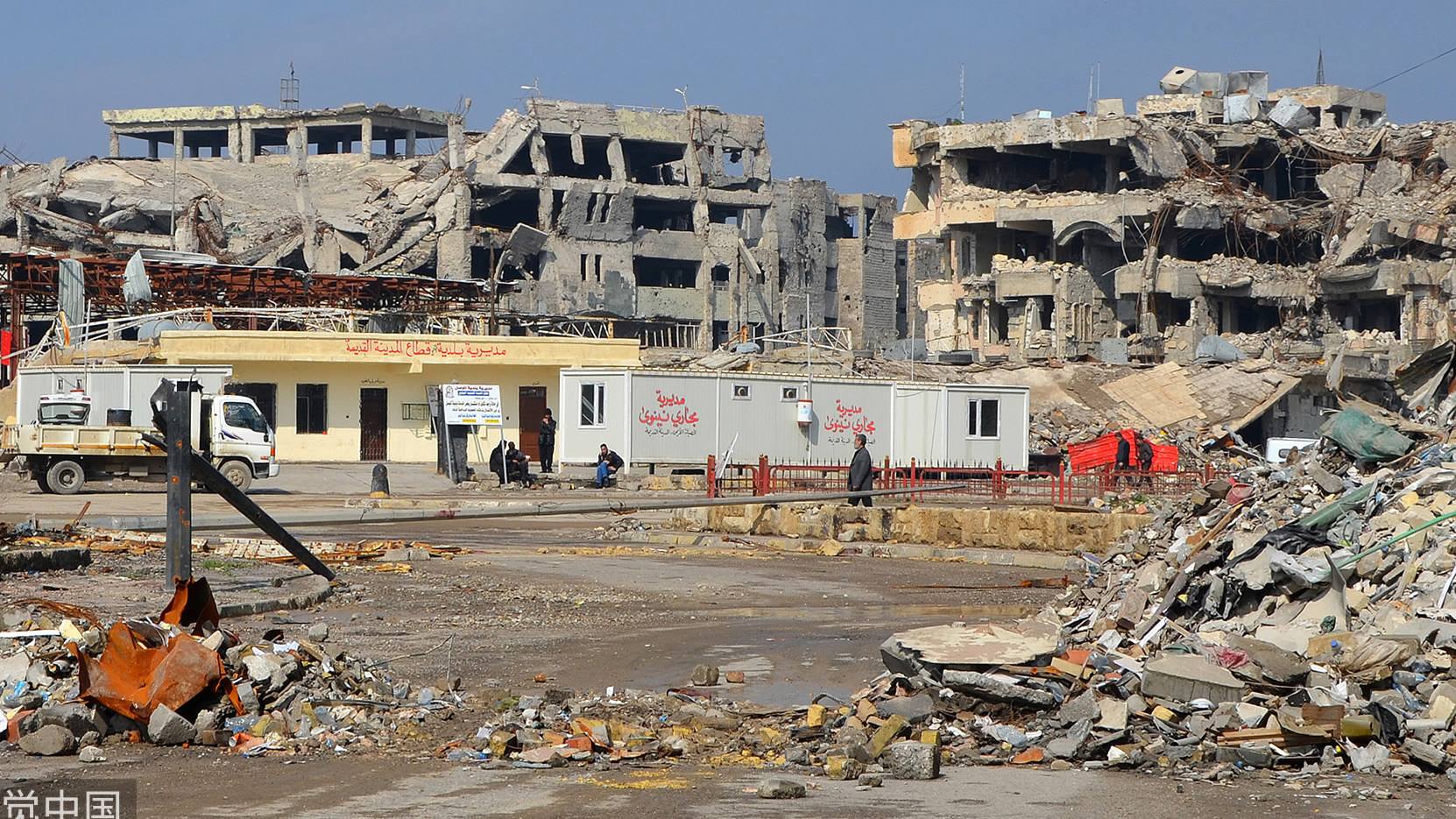
On Feb. 13, non-governmental organizations pledged 330 million US dollars of humanitarian aid to Iraq. The organizations were meeting as international donors gathered in Kuwait to discuss Iraq’s reconstruction after years of war and economic turmoil. The conference was co-chaired by Kuwait and Iraq, as well as the United Nations (UN), European Union (EU) and the World Bank (WB).
It came in the aftermath of liberating all Iraqi soil from the grips of the so-called Islamic State (ISIL); a war that left significant human and material losses in its wake. Iraq and its people were eager to rebuild the affected areas and establish humanitarian and developmental projects that will protect and rehabilitate the country’s infrastructure. The conference stressed that Iraq needs 88.2 billion US dollars to restore its country.
But Mr. Tillerson, the US state secretary who participated in the meeting, partially disappointed the participants. President Donald Trump said during the 2016 US presidential campaign that if elected, “the era of nation-building will be ended.” Meanwhile, Iraqi Prime Minister Haider al-Abadi has said his country needs up to almost 100 billion US dollars to fix crumbling infrastructure and cities devastated by the conflict against ISIL.
People are expecting the US not only to damage the country with counter-terrorist military battles, but to actively join in the reconstruction. As far as the Iraqi people are concerned, American policies simply cannot be fully trusted. Of the 100 billion US dollars that Mr. Abadi was hoping to receive, Iraq was struggling to get commitments of even 5 billion US dollars, while US only reluctantly promised a credit line of 3 billion US dollars.
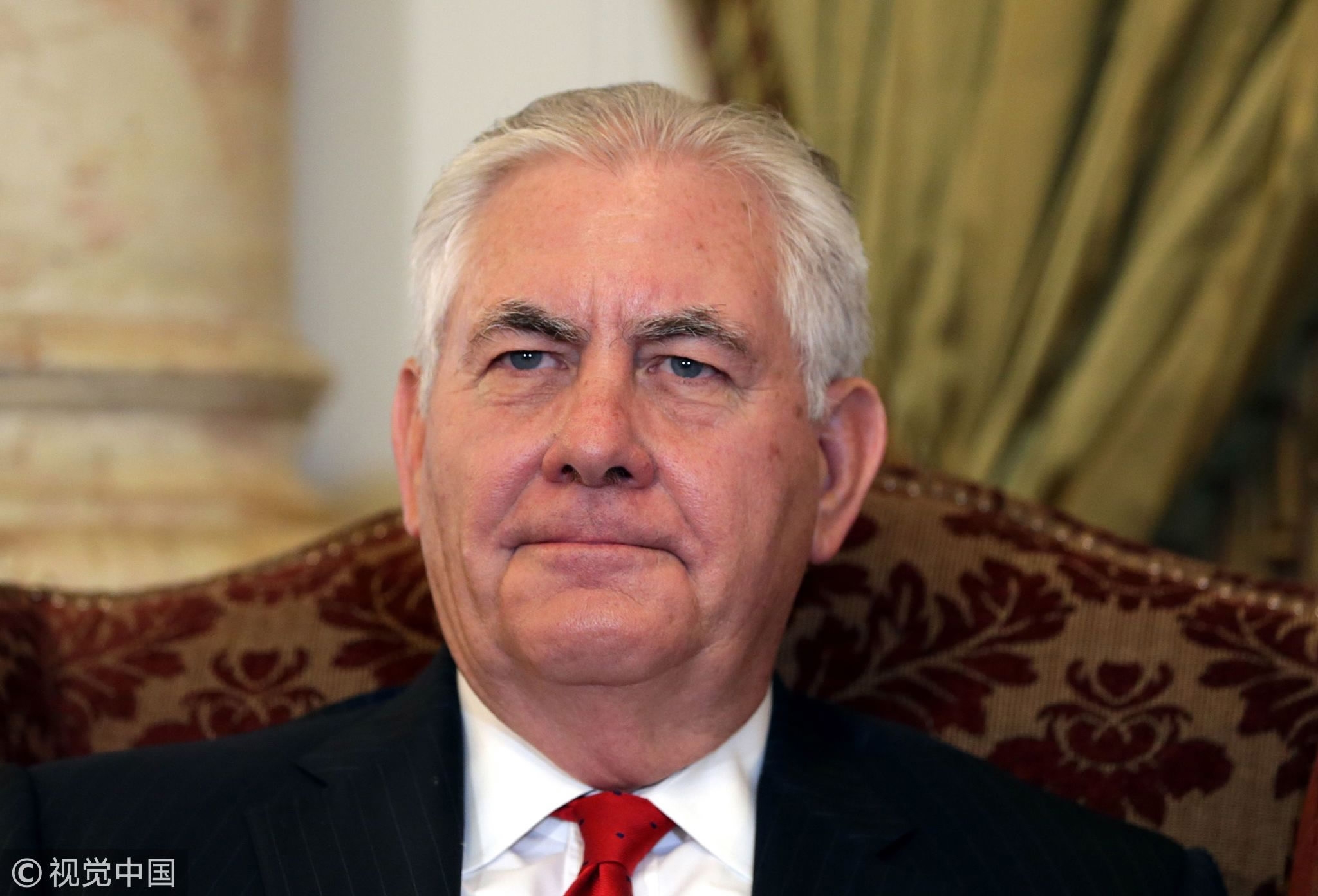
US Secretary of State Rex Tillerson looks on during his meeting with the Egyptian foreign minister in Cairo on Feb.12, 2018. /VCG Photo
US Secretary of State Rex Tillerson looks on during his meeting with the Egyptian foreign minister in Cairo on Feb.12, 2018. /VCG Photo
Tillerson, on Feb. 13, urged members of the coalition fighting Daesh to help rebuild Iraq or risk a reversal of the gains made against the group, and said it would extend to Baghdad a credit line of 3 billion US dollars, which greatly disappointed Iraq.
While Saudi Arabia and the United Arab Emirates had been expected to open their vast checkbooks at a conference in Kuwait to contribute much of the roughly 100 billion US dollars that is needed, those two nations now pledged little for the effort. A shortage of reconstruction funds could increase the danger of reinvigorating grievances against Iraq’s government. Limited US government resources alone cannot meet these current and pressing needs, let alone consider supporting long-term reconstruction.
The Iraqi delegation participating in the conference had a working agenda on three main topics: Reconstruction and investment, supporting stability in the country, and promoting peaceful coexistence among the different segments of Iraqi society. The World Bank has already said it would launch a project worth 300 million US dollars to improve the living conditions of more than 1.5 million poor families in Iraq.
For Iraqi rebuilding, China's response has always been very fast, and its commitment to Iraq’s rebuilding is quite real and significant. China did not begin with pledges of financial help, but China is supporting Iraq’s effort to reconstruct cities recaptured from ISIL, with President Xi Jinping saying “the Chinese government has decided to provide 80 million Chinese yuan in new material aid to the Iraqi government for post-war reconstruction.”
China offered to sign the agreement on reconstruction with Baghdad and announced 2018 would be the year of stability. The year is also intended to be a year to support stability in the liberated areas, “noting that” the current trend will be towards the completion of quick projects, which China had already taken active part in, with the low cost of returning the displaced as soon as possible.
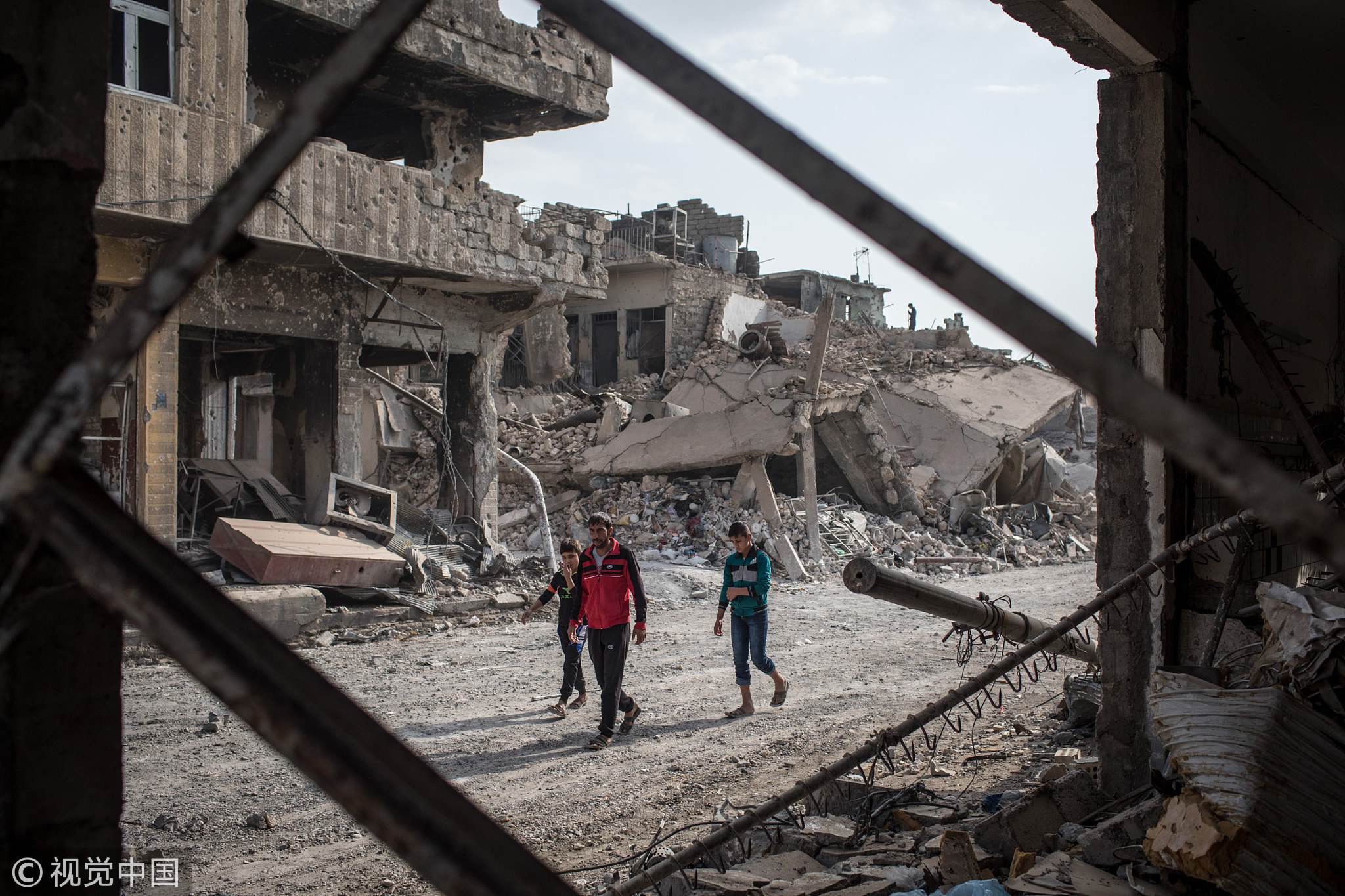
People walk amongst rubbles from destroyed buildings in an outer neighborhood of the Old City in West Mosul, Iraq, on Nov. 6, 2017. /VCG Photo
People walk amongst rubbles from destroyed buildings in an outer neighborhood of the Old City in West Mosul, Iraq, on Nov. 6, 2017. /VCG Photo
China is now enjoying friendly, good and influential relations with most countries in the region as it is expected to have a more effective security and political role in the Middle East. Iraq is seeking to find an outlet for the suffocating crises in Iraq in security, political and economic areas through the signing of quick and long-range agreements to avoid the fall in oil prices, which is the main source of Iraqi income, calling for making use of Iraq’s joining the Al-Hareer Road in developing areas of cooperation in many sectors, especially cooperation on energy with China.
Iraq is also now welcoming the expansion of investment by Chinese enterprises in the country. The Iraqi government also signed five agreements and memorandums for economic, technological, military, diplomatic, oil and energy cooperation with its Chinese counterpart.
China is the top foreign player in Iraq’s oilfields, which are the largest in the Middle East open to foreign investment. Meanwhile, Iraq is working on deepening relations with China and is seeking to promote such relations in all aspects, in particular in investment and rebuilding infrastructure.
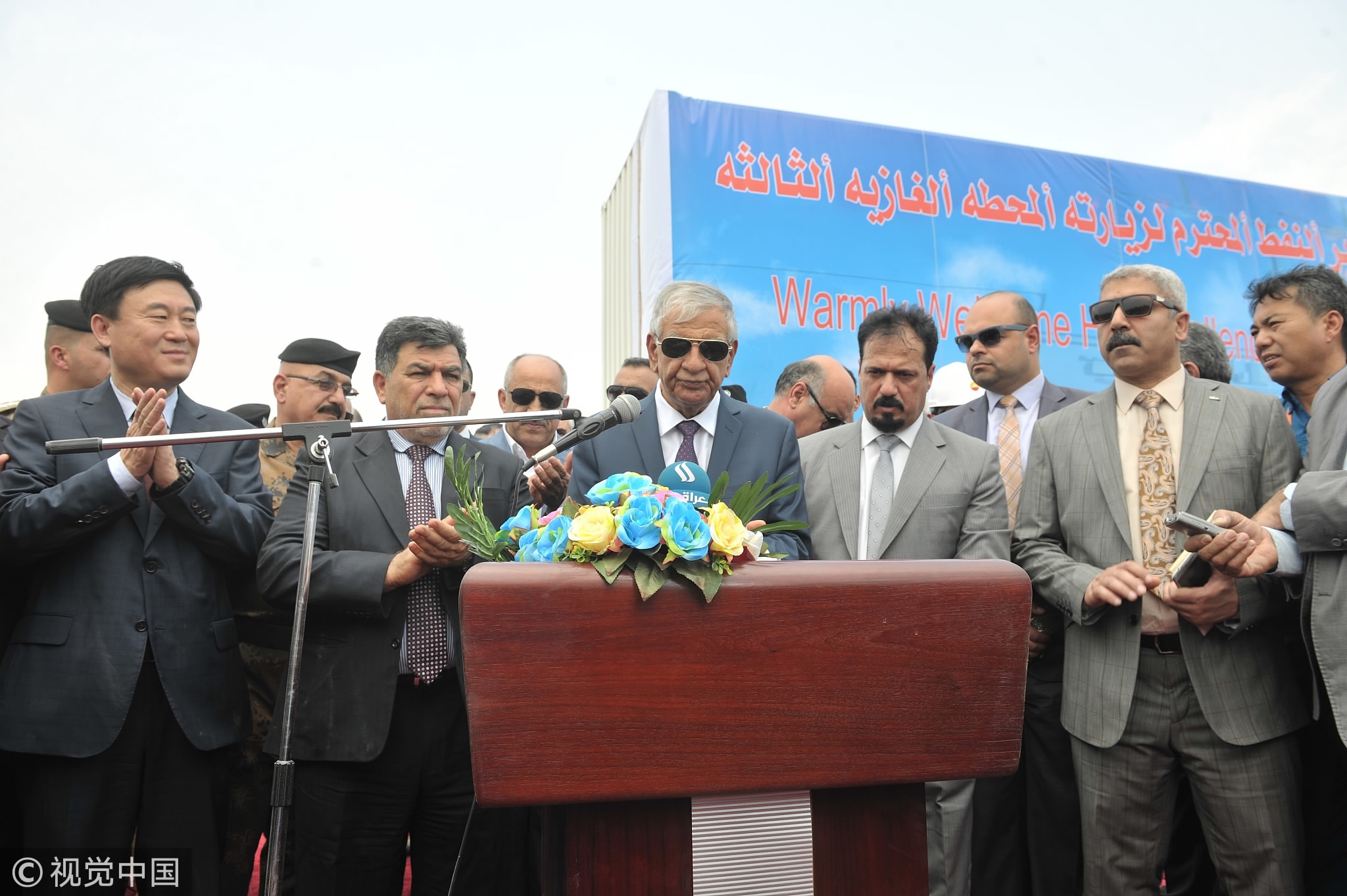
Iraq Oil Minister Jabbar Ali Hussain and Zhu Junfeng, CEO of CNPC Middle East, attended a ceremony in Halfaya on July 8, 2017. / VCG Photo
Iraq Oil Minister Jabbar Ali Hussain and Zhu Junfeng, CEO of CNPC Middle East, attended a ceremony in Halfaya on July 8, 2017. / VCG Photo
Mr. Abadi, the Iraqi PM, is asking for Chinese help in rebuilding his country's infrastructure, and for real assistance in combatting ISIL. The importance of the new Al-Hareer Road comes from the Chinese initiative and the areas on which it is linking to each other to form an economic belt that will expand economic and cultural exchanges.
Both China and Iraq regard the opposite party as one of the four civilized countries in the world. Sino-Iraqi relations benefit from important economic strategy against the backdrop of The Belt and Road Initiative. Iraq thinks that the initiative is important for Iraq because it is historically located on the Al-Hareer Road. Therefore, Iraq considers itself as part of the initiative since being put forward by Chinese President Xi Jinping. The importance of this initiative is to support Iraq so that it can rebuild the infrastructure and help it economically and developmentally to be active in the region.
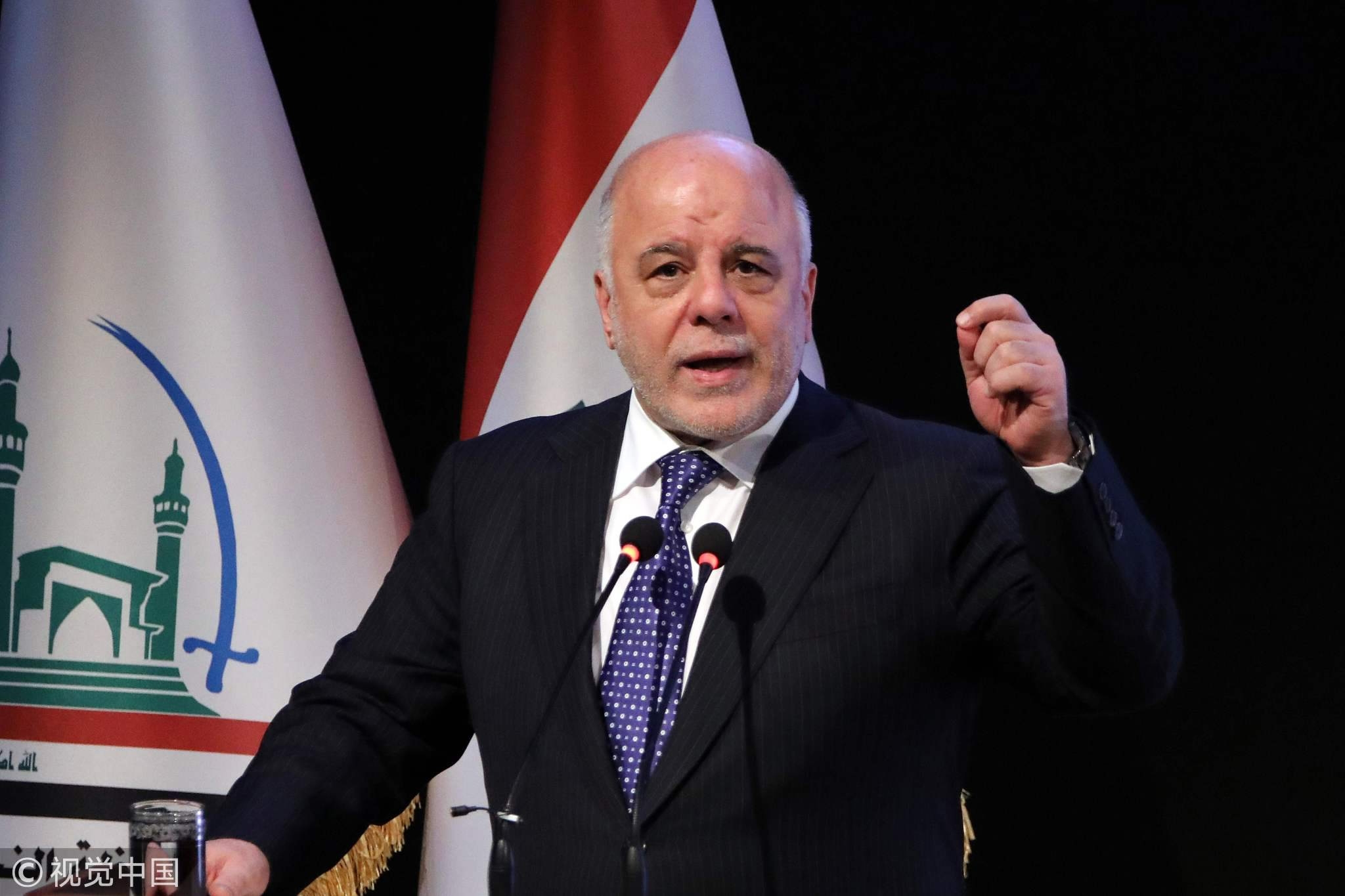
Iraqi Prime Minister Haider al-Abadi delivers a speech during a ceremony in the Shiite holy city of Najaf, Iraq, on January 7, 2018. /VCG Photo
Iraqi Prime Minister Haider al-Abadi delivers a speech during a ceremony in the Shiite holy city of Najaf, Iraq, on January 7, 2018. /VCG Photo
Nowadays, China enjoys superiority in many fields, and Iraq is an oil-exporting country, so the benefit is mutual. Chinese state-owned enterprises are the biggest oil investors in Iraq, especially the modernization and development of Iraq’s oil infrastructure. 90 percent of Iraq’s imports come rom oil sales.
Therefore, investment from China is important in Iraqi development. As Iraqi Ambassador to Beijing Berwari said, about 60 percent of the electricity in the Iraqi capital Baghdad is produced by Chinese companies in Iraq, and that China is a pioneer in the field of transportation and communication.
According to Berwari, Iraq wants China to have a more active role in the rebuilding of its country. China currently enjoys a very positive reputation in Iraq, while many Iraqi families and local governments are grateful to Chinese companies as local unemployment decreases and China continues supporting clean and green industries.
(Prof. Zhou Rong is from the Chongyang Finance Institute of Renmin University. The article reflects the author's opinion, and not necessarily the views of CGTN.)

SITEMAP
Copyright © 2018 CGTN. Beijing ICP prepared NO.16065310-3
Copyright © 2018 CGTN. Beijing ICP prepared NO.16065310-3